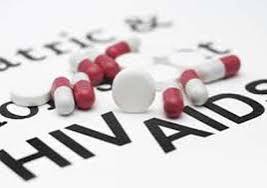Adamawa reports 8,850 new HIV infections in 4 years — ADSACA
The agency’s Director of Research, Monitoring and Evaluation, Abdullahi Adamu, disclosed this on Thursday in Yola during a media engagement session aimed at strengthening collaboration with journalists to enhance public awareness and promote behavioural change in HIV prevention.
According to Adamu, surveillance data indicate a steady increase in new infections over the past three years.
“In 2022, we recorded over 2,700 new cases; in 2023, more than 2,500; in 2024, 2,227; and between January and June 2025, we have already documented 1,423 new infections,” he said.
READ ALSO: World Bank, FG approve model vet hospital in Adamawa State
He expressed concern over the rising trend despite the availability of preventive measures, stressing the need to review existing strategies.
“We must adopt new approaches that deepen public awareness and encourage preventive practices such as abstinence, consistent condom use, and Pre-Exposure Prophylaxis (PrEP),” Adamu said.
He added that over 40,000 people living with HIV are currently on treatment in Adamawa, with 93 per cent achieving viral suppression, while 400 HIV-related deaths were recorded in 2024.
READ ALSO: Over 10 million HIV cases expected as Nigeria, 8 others run out of treatments
Adamu also highlighted the importance of antenatal registration and prevention of mother-to-child transmission.
“In 2024, 509 pregnant women who registered for antenatal care were enrolled on HIV treatment, 180 of whom were new infections. Without antenatal care and hospital delivery, some could have unknowingly transmitted the virus to their babies,” he explained.
He noted that the state government had procured over 40,000 HIV test kits, urging residents to utilise free testing services available in health facilities and community centres.
Also speaking, John Tobias, North-East Zonal Coordinator of the National Agency for the Control of AIDS (NACA), called on Nigerians to take ownership of the HIV response to ensure sustainability.
Tobias said a recent stop-work order by the United States Government in February had disrupted donor-supported interventions, limiting Nigeria’s capacity to provide adequate treatment and care.
“This is a wake-up call for us to take responsibility for our own health and reduce reliance on donor aid,” he said.
Describing the 1,423 new infections recorded in Adamawa in the first half of 2025 as “avoidable,” Tobias stressed that effective treatment remains one of the strongest prevention tools.
READ ALSO: NACA to launch N62.1b HIV Trust Fund
“If everyone living with HIV is identified and placed on treatment, there will be no room for further transmission,” he said, urging journalists to intensify public sensitisation and promote positive behavioural change toward ending new infections by 2030
Follow the Neptune Prime channel on WhatsApp:
Do you have breaking news, interview request, opinion, suggestion, or want your event covered? Email us at neptuneprime2233@gmail.com





